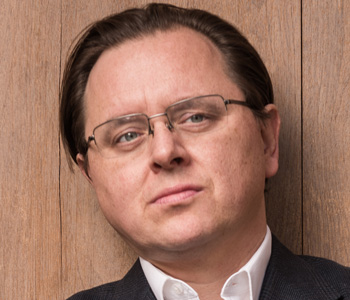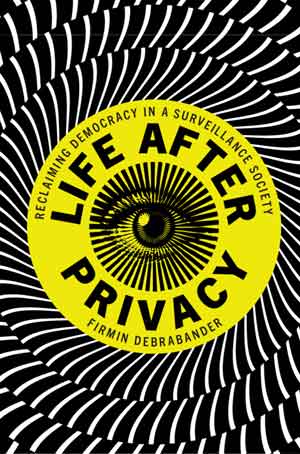
Life After Privacy examines the grave threat to privacy in the digital age, and its political implications. Unlike other writings on the topic, Life After Privacy does not lament or hyperventilate over the loss of privacy, nor does it aim to galvanize popular appreciation for this endangered institution. Rather, this book points out that privacy is but a recent institution, which has not been enjoyed for long, and that people have long lived—and flourished—without it.
We have a curious relationship to privacy: we will say we value it, but our behavior suggests otherwise. We seem all too willing to sacrifice data in exchange for the wondrous conveniences of technology—even for menial benefits, too, like sharing on social media.
Privacy advocates are horrified by this state of affairs. There are several reasons we might be less concerned—and place our concern elsewhere. For one thing, privacy is a young institution, and has ever been threatened. For much of its brief history, privacy was the province of the rich. Only in the mid-twentieth century was privacy widely enjoyed, for example, in middle class suburbia; no sooner had we achieved the apex of privacy than the digital age was upon us, and it was routed again.
A closer inspection, furthermore, reveals that privacy is an incoherent notion. Louis Brandeis provided a seminal legal definition when he said privacy is the ‘right to be left alone.’ But what exactly does it mean to be ‘left alone’? When am I ‘left alone’?—and can I be sure? Who ensures that I am ‘left alone’? Isn’t that principally up to me, whether I am resistant to intrusion or interference? In short, privacy is a moving target, impossible to pin down. How can we then defend it with any certainty?
Luckily, privacy is not so essential to democracy and freedom as its defenders think. Civil libertarians claim privacy is critical for developing autonomous, independent minded citizens. It creates that crucial space for free speech and thought, upon which expansions of liberty rely. And yet: civil rights activists never enjoyed any privacy in which to work out their controversial ideas and make plans. They succeeded, rather, thanks to cooperation, coordination of powers, and effective organizing—in the public sphere. The experience was the same for gay rights activists and labor activists, who never had the luxury of privacy, but delivered the most consequential civil rights gains of the past century nonetheless.
The health of the public—not the private—realm is essential to democracy, though it is equally endangered in the digital age today. If we would hope to defend civil liberty, we must learn how to make the public sphere vibrant again, and the internet is a poor substitute. Luckily, evidence abounds that we are hungry to inhabit public spaces again, where we can physically mingle, encounter difference, build resilient connections, and reap the fruits of community life.
More broadly, this book concerns the nature of democracy, and disputes the notion that individual citizens are its foundation. I agree with the American philosopher John Dewey, who claimed that the power of democracy is found and formed in communities. Individual citizens are not born ready-made; they do not come to their ideas on their own, nor do they have political impact individually. Rather, citizens are formed and mobilized in communities that nourish and encourage them. Associations are key to developing active, emboldened citizens, Dewey argued. Citizens cannot be isolated but must rather build bridges within intentional communities that operate and engage in the public realm. Thus, a right to privacy is less consequential to the welfare of democracy, which relies, rather, on the nature of our bonds, how we reach out, communicate, deliberate, and organize.
Life After Privacy also aims to contend with the reality of the digital economy. The Covid-19 pandemic has accelerated our dependence on technology, which consumes our data as a matter of course. Our privacy will be ever more vulnerable as the digital economy continues to envelop us. The task of protecting privacy—for the individual consumer—will only get harder. Much harder. Such that protecting privacy will be (or already is) a non-starter for many of us. Digital citizens, who are accustomed to exposing themselves on social media, and sharing data with retailers in exchange for services, will not be inclined to conceal themselves; besides the fact that they could hardly do so if they tried.
Privacy advocates recommend stronger regulations, which give us more power to control our data, and share it as we wish. But we have no idea what information our spies want, and why—the science of data analysis is so far beyond comprehension for most of us. Who knows, for example, that retailers have determined that buying felt pads for your furniture is a preeminent marker of creditworthiness? And who knows that Facebook can tell from our ‘likes’ and the patter of our posts if we are falling in love or breaking up? It is increasingly clear that lone individuals, even if bolstered by privacy regulations, stand little chance against the vastly powerful data industry that aims to analyze and influence us.
This is in keeping with a recurring theme of my writing: the relative impotence of the individual citizen, reliant upon him or herself. My first book, Do Guns Make Us Free? studied the radical gun rights movement, the strongest expression yet of American individualism, which holds that armed citizens are empowered to better protect themselves and exercise liberty. By contrast, I argued, a mass of unaffiliated armed individuals endangers us all, and makes us less free to inhabit any public space. Martin Luther King, Jr. demonstrated that non-violent citizens are eminently powerful when they cohere and coordinate efforts in concerted public demonstration.
Chapter 1 of Life After Privacy is an ideal first look for the average reader. This chapter examines our curious, conflicted relationship to privacy. We may say that privacy is important; we may recognize it as a crucial historical and political virtue—especially in America. In general, however, we hardly know what privacy is, or why it is valuable. And our behavior suggests we care very little about privacy at all.
Historians might argue that the United States was born of privacy concerns; colonists rebelled against British troops who occupied their homes and invaded their shops and warehouses. Privacy seems the quintessential American value. But it is not mentioned once in the U.S. Constitution; the right to privacy is articulated a century later—and only earns widespread legal protections in the 1960s.
In America, the right to privacy is everywhere, and nowhere. It is arguably the central design principle of suburbia, where most Americans live. And yet, isolated on suburban lots, behind privacy fences, in expansive basements, people go online—and expose themselves rather wantonly. I dub this our new ‘confessional culture.’ It amounts to something like a change in human nature, how we share so instinctively, and completely. Online, there is a growing sense that nothing is or should or need be private. Which means that our digital spies do not have to work hard to learn much about us. We digital citizens—thanks to our new culture of sharing—are the greatest threat to privacy.
Cultural critics and philosophers have tried to understand why we are suddenly so apt to share. Some believe it is in keeping with the capitalist spirit of entrepreneurialism: we share online in order to craft our personal ‘brand’ that we ‘sell’ to impressionable peers. Some argue, by contrast, that the impulsive sharing betrays an interest in privacy: when we expose some things, this draws attention away from others. I conclude, however, that we share because digital technology is a medium, and offers a sense of remove. It acts like Gyges ring, from Plato’s Republic, which makes its bearer invisible—and unhinged. Online, we feel utterly free, liberated to do and say what we like, with no thought of consequences—because we are physically removed from other people, whom we might injure or insult. Ironically, then, we are wont to share online because of a preponderant sense—and illusion—that we are alone, or private.
Our tenuous grasp of privacy, furthermore, is testified by a common adjective ascribed to privacy invasions: we dub them ‘creepy.’ When Target studies consumer data to determine when female customers are pregnant—in their second trimester, no less—we call this ‘creepy.’ This is the strongest complaint we can muster against surveillance regimes, but it is quite hollow, and useless. For, calling something creepy is to recognize that it is wrong—but you can’t say exactly what is wrong, or why. No wonder we cannot be bothered to protect privacy.
Many have observed in 2020 that democracy is endangered, largely by the lure and power of populist autocracy, which is ascendant worldwide—even in the United States, the largest and oldest democracy. Early internet evangelizers believed digital media would be a boon for democracy, enabling different people from across society, even all over the world, to communicate with one another, and build bridges. It did not work out this way: online, people flock to their own kind; they do not want their worldview challenged, but affirmed. They migrate to echo chambers, where they are hardened in their views, and vilify the opposition. Thus, digital media have made for greater political division and partisanship, especially in the United States.
In 2011, during the Arab Spring, it looked like digital media would be a wellspring of democratic revolution; now, autocratic regimes have fully coopted said media. They have learned it is easy to isolate and influence people online, confuse them and splinter them, and prevent popular power from coalescing.
I hope Life After Privacy might make people aware of the dangers and shortcomings of digital technology. We are wrongly urged to put our hopes in protecting privacy, as if that were the way to salvage liberty and democracy. But online privacy is worth little—it amounts to little political power—even if it were possible to achieve, or preserve.
Democratic citizens must reach across the digital divide. They must step outside their solipsistic digital bubbles, which give the illusion of privacy and solitude, encourage all manner of asocial behavior, and sunder communal ties. This is not to say we must abandon digital technology. That is hardly possible—never more so than in the age of Covid-19, when we rely on digital media to get anything done. Rather, the digital revolution must be balanced by a return to the public square, where we convene and encounter one another in non-transactional, non-commercial relationships, and see people in their full complexity.
Democracy requires that citizens relearn the art of politics, the art of conversing and deliberating with fully rounded peers, who are respected and recognized. This is how we truly see one another in all our nuances; this is where we construct bonds that overcome partisan divides, enable us to live together in peace and security, and preserve and expand freedom.


Firmin DeBrabander is Professor of Philosophy at the Maryland Institute College of Art in Baltimore, Maryland. He is the author of the books Do Guns Make Us Free? (Yale University Press, 2015) and Life After Privacy (Cambridge University Press, 2020), which is featured in his Rorotoko interview. He has written social and political commentary for a variety of national publications, including The New York Times, Washington Post, The Atlantic, Baltimore Sun, New Republic and Common Dreams.